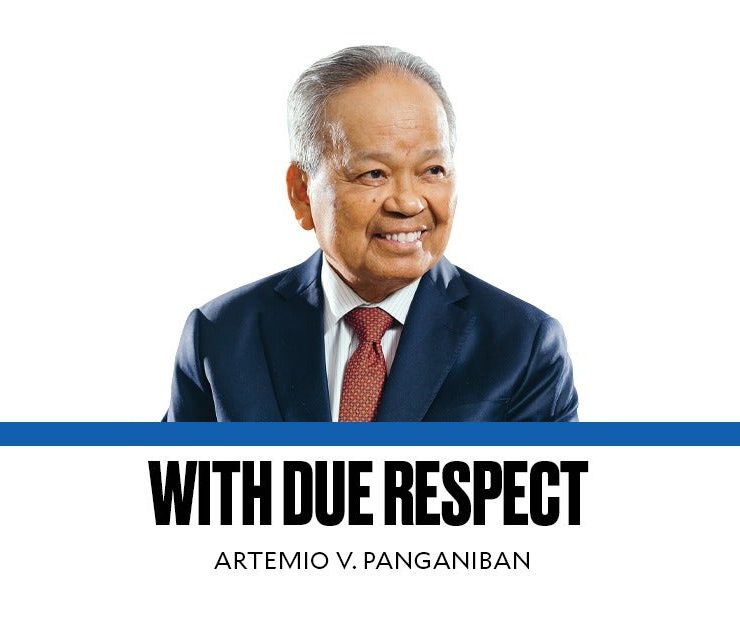Quixotic chances of anti-dynasty petitions

The Supreme Court has required the Senate and the House of Representatives to comment—within a non-extendible period of 10 days from notice—on the petition of 1Sambayan coalition to compel Congress to enact an anti-political dynasty law. It also consolidated the petition with the earlier ones filed by the Kapatiran party and by Wilfredo Trinidad.
TO UNDERSTAND THE ISSUES, let us begin with the Constitution (Article II, Section 26): “The State shall guarantee equal access to opportunities for public service, and prohibit political dynasties as may be defined by law.”
Petitioners 1Sambayan coalition, et al., led by retired senior associate justice (SAJ) Antonio T. Carpio, lament that despite the passage of almost four decades since the Constitution took effect, Congress has failed, or worse, has refused to define political dynasties, and has thereby unconscionably defied a duty mandated by the Constitution.
Moreover, the phrase “as may be defined by law” does not weaken the mandate or command; rather it underscores the obligation of Congress to define the scope and parameters of the prohibition so it can be effectively implemented and enforced.
ORDINARILY, THE DOCTRINE OF SEPARATION OF POWERS enables each of the three major branches of the government (President, Congress and Supreme Court) to exercise freely the powers and duties assigned by the Constitution to each of them without interference from the others. Specifically, the Supreme Court (and the entire judiciary) should allow Congress to enact, or not to enact, laws as it deems appropriate in its sound discretion.
However, our current Constitution, unlike our past Constitutions, empowers the judiciary to strike down grave abuse of discretion (GAD) amounting to lack or excess of jurisdiction committed by any instrumentality of the government. Citing one of my earliest en banc unanimous decisions, Tanada v. Angara (May 2, 1997) and many other cases, the petitioners aver that the judiciary (not just the Supreme Court) has the duty, the solemn duty—not just the power—to strike down GAD.
As to what constitutes GAD is not defined by the Constitution. However, jurisprudence has commonly described it as the “whimsical, arbitrary, capricious, and despotic exercise of judgment so patent and so gross as to amount to an evasion of a positive duty or a virtual refusal to perform a duty enjoined by the Constitution or the law.”
As to whether indeed Congress has been “whimsical, arbitrary, capricious and despotic” in refusing or neglecting to pass an enabling anti-dynasty law is for the petitioners to convince the Court, given that over the years various bills have been filed but have remained unenacted. Lately, Sen. Robinhood Padilla crafted an anti-dynasty bill and vowed to have it passed by the lawmaking body. Several senatorial candidates, among them, Panfilo Lacson, Bam Aquino, and Kiko Pangilinan made the same public vow.
I shall not argue for or against the petition lest I be held in contempt as an opinion writer and in my delicate capacity as the incumbent president of the Association of Retired Justices of the Supreme Court of the Philippines. SAJ Carpio is an esteemed member of the association.
But even if petitioners can succeed in the difficult task of convincing the justices to hold Congress guilty of GAD, still there are remaining questions, like how much time should the lawmakers be given to enact the law? The petitioners suggest one year. Is that reasonable?
Moreover, the Court—assuming it would grant the petition—must still respect the constitutional discretion of the lawmakers to define its scope, parameters, and limits.
MORE DIFFICULT, IF NOT QUIXOTIC, is the petition filed by the Alyansa ng Nagkakaisang Mamamayan or Anim in the Commission on Elections (Comelec) to disqualify five candidates who are obviously members of publicly known dynasties, namely, former president Rodrigo Duterte (candidate for mayor of Davao City), Matthew Manotoc (for governor of Ilocos Norte), Peter Cua (for governor of Catanduanes), Speaker Martin Romualdez (for congressman of the first district of Leyte), and Sen. Cynthia Villar (for representative of Las Piñas City).
Lawyer Alex Lacson, Anim co-convenor, argued that relatives within the first degree, like husband-wife, parents-children, grandparents-descendants come within the commonsense definition of dynasty and do not require any law to disqualify them. The Comelec promptly denied the petition. Anim asked the Supreme Court to reverse the poll body’s failure to implement the Constitution’s anti-dynasty provision.


















